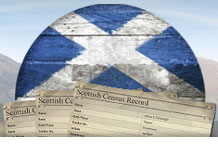Guest Blog
Welcome to the new Genes Reunited blog!
- We regularly add blogs covering a variety of topics. You can add your own comments at the bottom.
- The Genes Reunited Team will be writing blogs and keeping you up to date with changes happening on the site.
- In the future we hope to have guest bloggers that will be able to give you tips and advice as to how to trace your family history.
- The blogs will have various privacy settings, so that you can choose who you share your blog with.
Official Blogs
New Guest Blog from Anthony Adolph
It is 19 July 2010, and I am using a short lull in my live webcast to start writing my first entry for the Genes Reunited blog. I have been Genes Reunited's 'resident genealogist' since six months after its start, and each month since summer 2003, I have spent an hour a month with these live sessions - getting on for one hundred of them - receiving questions from members all over the world, and doing my best to answer them. Most of the feedback I get from this is positive: just now (I'm checking back to the page every few minutes) someone's written 'I knew you would come up with another angle that I hadn't thought of. Its much appreciated'. I do remember once someone criticised me for being sarcastic. I looked back at the session he was referring to, and saw it had been a very busy night, with masses of questions, so I'd had to type very short answers: they were certainly not intended to sound sarcastic but in hindsight I could see that their very brevity could be misinterpreted that way! Luckily, recent sessions have seen a steady flow of questions, rather than an overwhelming flood, so I have been able to take a bit more time and try to provide a little bit more depth. Trouble is, if I only have one question to answer, I might decide to take five minutes answering it, but it's only when I send it off that I can find out if I have no, one, two or two dozen new questions waiting for me! But that's life.
Often, I notice that a theme seems to develop in the course of a webcast. Sometimes, this may be complete coincidence, but recently I've started to wonder if it may be that people see a certain sort of question, realise that it is similar to a problem they have got, and this inspires them to ask a similar question. Themes that have developed have included trying to find ancestors or relatives abroad, not being able to find people in censuses, or seeking close family, such as long-lost parents and grandparents. In this session, the prevalent theme seems to be people who have been looking for grandparents or great grandparents in the censuses and General Registration records, but not being able to find them in all of them. I one case, for example, it was a question of a lady whose death could not be found. That was a potentially easy one to answer, as if a woman's death is ever 'missing', it is always possible that she had remarried: she thus ended her life under her new husband's surname, and was registered under it. Therefore, ironically, to find a death, you might need to look first in the marriages!
There were also a couple of cases where a very understandable misunderstanding had arisen: members had found references to a birth, marriage or death in the indexes on this site (under 'Search Records'), but were not 100% sure it was the right one, and didn't want to buy the certificate until they were sure. It's a real shame this situation arises. It's the fault - and 'fault' is the right word - of the way the original indexes were made, up to 164 years ago in the case of those for 1837, because they don't give a huge amount of identifying detail, and also of the current way the General Register Office is run. They insist that, if you want to know if the certificate is the right one, you've got to buy it - and if it is not the right one, then bad luck! Possibly with some justification, they argue that they simply have not the time or resources to get involved in potentially long and complicated dealings with people trying to find the right records. At any rate, that's how the system works, so my advice to people is always - if in doubt, and you can afford it, buy the certificate. Even if it turns out to be the wrong one, at least it has been eliminated from your enquiries. In some cases, if you have several possible entries, you may be able to eliminate false ones by finding the people concerned in the censuses. Sometime, this can be easy, other times it doesn't produce a clear answer, but it is usually worth a try - not least because the censuses are all beautifully indexed on this site.
The next webcast is on 23 August. If you have any questions, or want to comment on anything I have written here, I'll be happy to hear from you on the night!

